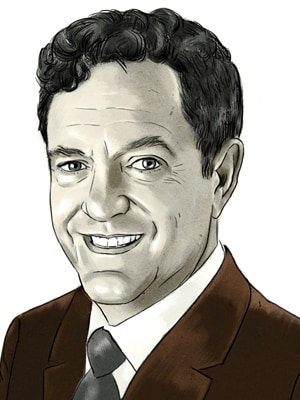
Society's lottery winners are worthy of respect, too: Rich Karlgaard
Whether intended or not, Obama's choice of words to describe successful Americans was in extremely poor taste
Words matter. Take the phrase “If we can’t ask from society’s winners to make [an] investment…” It’s a familiar plea from preachers and fundraisers, a particularly American approach. The US, happily, is a country that mints many winners who then give lots of money to charities, churches, schools and non-profits. Now change this plea by adding a single word: “If we can’t ask from society’s lottery winners to make [an] investment…” That one word, ‘lottery’, changes the entire meaning. A good-hearted plea to society’s successful to heed their better angels and give something back becomes, by inserting ‘lottery’, sarcastic and cutting.
Winning a lottery doesn’t make a person worthy of respect. A lottery winner wins only because others lose. A lottery winner who won’t give back, therefore, is a lucky bastard.
A winner is worthy of respect. He or she studied a discipline, risked time and capital, met market needs, learnt from mistakes and likely worked very hard to achieve success.
This little example of how ‘lottery’ changes an entire sentence’s meaning would be trivial but for one fact: US President Barack Obama said it— ‘lottery’ and all—while speaking on a poverty panel last month. Was it an unintentional slip to call successful Americans “lottery winners” or was it a window into the president’s worldview on wealth, poverty and injustice? If it’s the latter, we’re in new territory. I don’t recall another American president who had such a sarcastic view of success. President Franklin Roosevelt said big business and bankers opposing his New Deal were “malefactors of great wealth”, but he stopped short of making snarky comments about successful people being lucky. Woodrow Wilson thought entrepreneurs were a passing fad to be replaced by scientific consortiums of big business and big government. But he didn’t call Thomas Edison and the Wright Brothers lottery winners.
Luck or hard work?
Intended or not, Obama’s use of “lottery winners” was in poor taste. Bill Gates and Paul Allen were lucky to be endowed with the 99.99th percentile IQs they didn’t choose. But they devoted tens of thousands of hours in applying their smarts to learning about software. Both risked potentially lucrative careers to start Microsoft.
Larry Page was the grandson of a Michigan autoworker and the son of a professor of computer science and an instructor of computer programming. His business partner, Sergey Brin, was born into a Jewish family in the anti-Semitic Soviet Union. Both were “lucky” to be endowed with native intelligence and to grow up in families that loved learning. But millions of children around the world are similarly endowed and don’t start Google-like companies.
WhatsApp’s Jan Koum grew up in a single-parent California household that often relied on welfare. Netscape co-founder Jim Clark grew up in Texas panhandle poverty and dropped out of high school at 16. His co-founder, Marc Andreessen, grew up in a rural Wisconsin family unfamiliar with higher mathematics, computer science or software—or even much logical reasoning.
Wilbur and Orville Wright’s father, according to The Wright Brothers, encouraged reading and independent thinking. But the brothers acquired an interest in bicycles and kites. In 1899, Wilbur asked the Smithsonian Institution for papers on mechanical and human fight, adding that he wasn’t a “crank”. The brothers existed on little but eggs and suffered apocalyptic mosquito attacks while doing their wingwarp experiments. In 1905, they were able to fly circles for 30 minutes and more. By 1908, they could stay aloft for 90 minutes and do figure eights. Orville almost died when the propeller broke off a plane he was flying, which then crashed, killing his passenger.
Between the time Wilbur received his papers and the French and US militaries believed the Wright Brothers had mastered controllable flight, nine years of bad food, bug bites, crashes and sneering press coverage had passed. President Theodore Roosevelt had the good grace not to call the Wright Brothers “lottery winners”.
Rich Karlgaard is the publisher at Forbes
(This story appears in the 30 November, -0001 issue of Forbes India. To visit our Archives, click here.)






